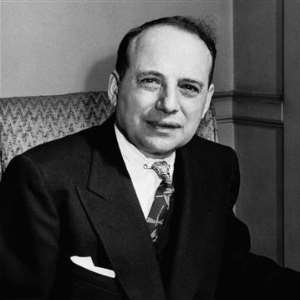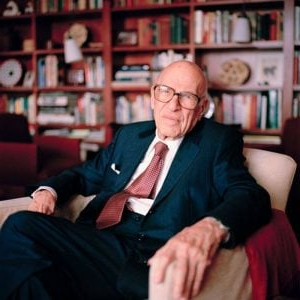A metaphor, often repeated by Charlie Munger, “Standing on the shoulders of giants,” means building on the knowledge from major thinkers to make intellectual progress. It prevents one from reinventing the wheel. In this article, we look at the best value investors to build further on their intellect to become better value investors ourselves. Some are more successful and famous than others, but you can still learn many lessons from them.
The best value investors
Most successful value investors have their style. They have unique ways to find value and the type of business to focus on. There is no right or wrong. The best value investors don’t compare themselves with the competition. They only want to outperform a chosen index.
Looking at successful value investors helps you identify methods you prefer. You can copy these and later improve them. Reading their books gives unique insights into their way of thinking and philosophy. The following list is meant as an inspiration source for value investors.
Benjamin Graham
Benjamin Graham (1894–1976) was an American economist, investor, and author whose contributions have significantly shaped the investment landscape. He is often named the ‘father of value investing,’ his influence remains strong on investors today.
Graham’s investment philosophy centers on value investing, which involves identifying stocks or assets trading below their intrinsic value. His book, “Security Analysis,” co-authored with David Dodd, laid the groundwork for fundamental analysis and is recommended investment literature.

His most well-known work, “The Intelligent Investor,” put his investment principles into practical guidance. Emphasizing the importance of a margin of safety and disciplined investing, Graham advocated for a long-term approach and discussed the difference between speculation and investing. His emphasis on research, valuation, and rational decision-making remains relevant today. It revolutionized how investors approach the market.
Benjamin Graham looked for the company’s intrinsic value with a simple method, the net-net working capital. The figure estimates the company’s valuation when it gets liquidated. It would be best to consider other factors, but it may make the screening process for finding undervalued stocks easier.
Warren Buffett
Warren Buffett, born in 1930, is an iconic American investor, business magnate, and philanthropist. He is globally recognized for his exceptional success in investment circles and is often called the ‘Oracle of Omaha.’ Now, Buffett serves as the chairman and CEO of Berkshire Hathaway, a multinational conglomerate that he has transformed into a money-making machine.
Buffett’s investment philosophy revolves around value investing, a strategy influenced by his mentor, Benjamin Graham. After his apprenticeship with his mentor, he started a partnership to invest money using the cigar butt approach. Later, Buffett bought into the cigar butt Berkshire Hathaway and later became the company’s major shareholder and ultimately took over as CEO of this textile business.
The textile industry was slowly dying, and Buffett started to allocate freed-up capital to generate cash flow. He focuses on identifying undervalued companies with solid fundamentals and enduring competitive advantages. His annual letters to shareholders and memorable quotes provide insights into his pragmatic and straightforward approach.
Renowned for his down-to-earth lifestyle and profound wisdom, Buffett has achieved staggering wealth while maintaining humility and relatability. His success largely rests on his long-term outlook, patience, and ability to seize opportunities in a volatile market.
Beyond investing, Buffett’s commitment to philanthropy is a significant aspect of his legacy. He pledged to give away the majority of his wealth to charitable causes through the Giving Pledge initiative.
Charlie Munger
Charlie Munger, born in 1924, is an American investor, businessman, and the longtime business partner of Warren Buffett. Munger is known for his wisdom, wit, and contributions to the investing field. He serves as the Vice Chairman of Berkshire Hathaway, the conglomerate he and Buffett have built.
Munger’s investment philosophy is grounded in a multidisciplinary approach, drawing insights from various fields such as psychology, economics, and engineering. He often emphasizes the importance of understanding the broader world to make informed investment decisions. His intellectual depth comes from his lifelong commitment. It is reflected in his speeches and writings, where he discusses concepts like mental models and the integration of different disciplines.
Munger’s partnership with Buffett has been highly successful, with his insights and Buffett’s value investing approach. He’s also known for his frankness and ability to put complex concepts into straightforward wisdom. His annual appearances at Berkshire Hathaway’s shareholder meetings are eagerly anticipated for the insights he shares.
Charlie Munger prefers to know a lot about a little instead of knowing a little about a lot. His early-on investment portfolio reflected this. Even nowadays, he only has a small portfolio, including Costco and Berkshire.
Li Lu
Li Lu, born in 1966, is a Chinese-American investor, fund manager, and philanthropist. He has significantly contributed to the investment world while less widely recognized than figures like Buffett and Munger. Li Lu is the founder and chairman of Himalaya Capital Management. This investment firm focuses on value-oriented investments. He gained prominence for his early involvement with Berkshire Hathaway’s Charlie Munger and Warren Buffett.
Li Lu’s investment philosophy is influenced by value investing principles, emphasizing a deep understanding of businesses and seeking a margin of safety in investments. He’s known for his disciplined approach and long-term perspective. Li Lu’s life journey is also remarkable—he participated in the Tiananmen Square protests in 1989. He later immigrated to the United States for his education.
Li Lu’s investment success has allowed him to engage in philanthropy, including efforts to improve education in China. While less widely discussed than some other investors, Li Lu’s achievements and contributions continue to earn him respect in the investment and philanthropic communities.
Guy Spier

Guy Spier is a Swiss-American value investor, author, and public speaker. He gained prominence for his investment philosophy and his association with Warren Buffett. Spier is the founder and managing partner of Aquamarine Capital Management, an investment firm that follows a value-oriented approach.
Warren Buffett and his ideas deeply influence Spier’s investment philosophy. He emphasizes the importance of aligning investments with personal values and principles. Spier gained attention by winning with Monish Pabria, a charity auction for lunch with Buffett, where he discussed investing and received insights into Buffett’s mindset.
In his book “The Education of a Value Investor,” Spier shares his journey from a conventional Wall Street career to embracing value investing and a more mindful approach to wealth. He stresses the significance of patience, long-term thinking, and the value of continuous learning.
Spier’s story also includes personal growth and pursuing a balanced and purposeful life. His openness about his own experiences and challenges resonates with those seeking a more conscious and values-driven approach to investing.
Guy Spier’s unique blend of value investing principles and mindfulness has attracted a dedicated following. His insights into investing, personal development, and ethical considerations make him a notable figure in the world of finance.
Monish Pabrai
Mohnish Pabrai is an Indian-American investor, author, and entrepreneur known for his value investing approach and association with Warren Buffett. He’s the founder and managing partner of Pabrai Investment Funds, which follows a value-oriented investment strategy.
Warren Buffett and Charlie Munger heavily influence Pabrai’s investment philosophy. He emphasizes the concept of ‘cloning,’ which involves studying and emulating successful investors’ approaches. Pabrai gained significant attention by winning, together with Guy Spier, a charity auction for lunch with Buffett, which led to valuable insights into Buffett’s investment principles.
His book “The Dhandho Investor” outlines his investment philosophy, which draws from the principles of value investing and his own experiences. Pabrai’s approach involves investing in companies with substantial competitive advantages and buying them at a discount to their intrinsic value.
Pabrai’s journey also includes moments of introspection and the pursuit of simplicity in investing and life. He’s known for his honest discussions of his successes and failures, which provide valuable learning opportunities for aspiring investors.
While not as widely recognized as some other investors, Mohnish Pabrai’s dedication to value investing, his willingness to share his experiences openly, and his successes in the investment world have earned him respect among value-oriented investors and enthusiasts.
Peter Lynch
Peter Lynch, born in 1944, is a renowned American investor, author, and mutual fund manager who achieved widespread recognition for his successful management of the Fidelity Magellan Fund. He achieved a remarkable annual return of 29.2% at Magellan from 1977 to 1990. Besides the impressive returns, he’s also known for his approachable and relatable investment philosophy.
Lynch’s investment philosophy centers around the idea that individual investors can succeed by investing in what they know and understand. He popularized the concept of “investing in what you know,” widely known as the circle of competence. Its concept encourages people to look at the world around them for investment opportunities. This approach led him to invest in consumer products and retail companies.
His famous book, “One Up On Wall Street,” introduced his investment principles to a broader audience. Lynch advocated for thorough research, a company’s competitive advantage, and a long-term perspective. He believed everyday individuals had a potential edge over professional investors due to their familiarity with certain industries. His three books emphasized the importance of patience, discipline, and staying invested through market ups and downs.
Lynch’s ability to communicate complex investing ideas simply and relatable made him a beloved figure among individual investors. His contributions to the investing field continue to inspire people to approach the stock market with a practical and informed mindset.
Seth Klarman
Born in 1957, Seth Klarman is a highly respected American investor, fund manager, and author known for his disciplined and value-oriented investment approach. He is the founder and CEO of The Baupost Group, a hedge fund with a reputation for delivering consistent returns over the years.

Klarman’s investment philosophy is deeply rooted in value investing principles. He focuses on buying securities at prices significantly below their intrinsic value, seeking a margin of safety to protect against potential losses. Klarman’s approach involves thorough research, fundamental analysis, and a long-term perspective. He looks for securities in less popular places or where the construction of the securities is more challenging to understand for most investors.
While not as widely known as some other investors, Klarman’s book “Margin of Safety,” published in 1991, has gained a cult following among value investors. The book explores his investment philosophy and provides insights into his thinking. Due to its limited availability, it has become a sought-after resource in the investing community.
While not as widely known as some other investors, Klarman’s book “Margin of Safety,” published in 1991, has gained a cult following among value investors. The book explores his investment philosophy and provides insights into his thinking. Due to its limited availability, it has become a sought-after resource in the investing community.
Klarman is known for his cautious and contrarian approach to investing. He often emphasizes the importance of patience, discipline, and the ability to tolerate short-term market fluctuations. His successful track record and conservative approach have earned him a spot in the list of best value investors.
Joel Greenblatt
Born in 1957, Joel Greenblatt is an American investor, author, and educator known for his innovative investment strategies and contributions to value investing. He’s the founder of Gotham Asset Management, a hedge fund known for its unique approach to investing.
Greenblatt is perhaps best known for his concept of the Magic Formula, outlined in his book “The Little Book That Beats the Market.” The Magic Formula combines two key factors: high earnings yield (cheapness) and high return on invested capital (quality). This approach aims to identify undervalued stocks with strong underlying businesses.
Like all great value investors, Greenblatt’s investment philosophy emphasizes simplicity and discipline. He believes investors can succeed by sticking to a systematic, rules-based approach and avoiding emotional decision-making. He also highlights the importance of long-term thinking and patience during market fluctuations.
Joel Greenblatt’s Magic Formula and investment philosophy have garnered attention and respect among investors. His ability to put complex ideas into accessible strategies has made him a popular figure in the investing community. His teachings continue influencing investors seeking a systematic and quantitative approach to value investing.
Walter Schloss

Walter Schloss (1916–2012) was an American value investor known for his straightforward and disciplined investment approach. He was a student of Benjamin Graham and earned a reputation for achieving impressive returns through his conservative yet effective investing style.
The teachings of Benjamin Graham profoundly influenced Schloss’ investment philosophy. He followed a simple and time-tested approach, seeking to buy stocks trading at substantial discounts to their intrinsic value. He looked for companies with low price-to-book ratios and solid financials, often focusing on small and lesser-known stocks.
Schloss was known for his independence and humility. He operated with a small team and avoided using computers, preferring to rely on his research and analysis. He believed in a conservative margin of safety and often held his investments for the long term, avoiding the allure of short-term trading.
Despite being less widely recognized than some of his contemporaries, Schloss’ investment record was highly respectable. He consistently delivered solid returns over his long career, earning him respect and admiration within the investment community.
Walter Schloss’ legacy lies in the value investing principles and his ability to succeed through a disciplined and patient approach. His story inspires those seeking consistent, long-term returns through careful stock selection and a commitment to value.
Sir John Templeton
Sir John Templeton (1912–2008) was a British-American investor, philanthropist, and mutual fund pioneer who left an indelible mark on the investment world. He is known for his innovative investment strategies, philanthropic efforts, and insights into finance and spirituality.
Templeton’s investment philosophy was characterized by his willingness to go against the crowd and seek opportunities in global markets. He founded the Templeton Growth Fund, which achieved significant success by investing in international stocks, often in countries others overlooked. His approach involved identifying undervalued stocks with the potential for long-term growth. One contribution to his success is moving to the Bahamas to avoid chasing popular opinions of Wall Street.
One of Templeton’s famous maxims was, “The four most dangerous words in investing are: ‘This time it’s different.'” He believed in the cyclical nature of markets and the importance of maintaining a contrarian mindset.
Later in life, Templeton became more focused on the intersection of finance and spirituality. He established the Templeton Foundation, which supported research and exploration into areas related to science, religion, and human well-being.
Aswath Damodaran
Aswath Damodaran, born in 1957, is an influential Indian-American finance professor, author, and valuation expert. He is a professor of finance at the Stern School of Business at New York University (NYU), where he teaches courses on corporate finance and valuation. Damodaran is not an investor and thus should not be in the list of best value investors. However, his teachings on company valuation influenced many value investors.
Damodaran is widely recognized for his expertise in valuation and corporate finance. He has written several books, including “Investment Valuation” and “The Little Book of Valuation,” widely regarded as authoritative resources in the field. His teachings and writings have made complex financial concepts accessible to a broad audience. Thus, some refer to him as the ‘Dean of Value Investing.’
He is known for his unique approach to valuation, which integrates both quantitative and qualitative factors. Damodaran’s valuation models often incorporate industry-specific considerations and market dynamics, emphasizing the importance of understanding the nuances of each business.
Beyond his academic work, Damodaran is an active blogger and speaker. His blog, Musings on Markets, covers various finance, investing, and valuation topics. He is also known for his annual equity risk premium surveys, which provide insights into market expectations.
Aswath Damodaran’s contributions to finance have earned him a reputation as a thought leader and educator. His ability to explain complex financial concepts clearly and relatable has made him a sought-after resource for students and professionals in the finance and investment industries.
Frequently Asked Questions (FAQ)
